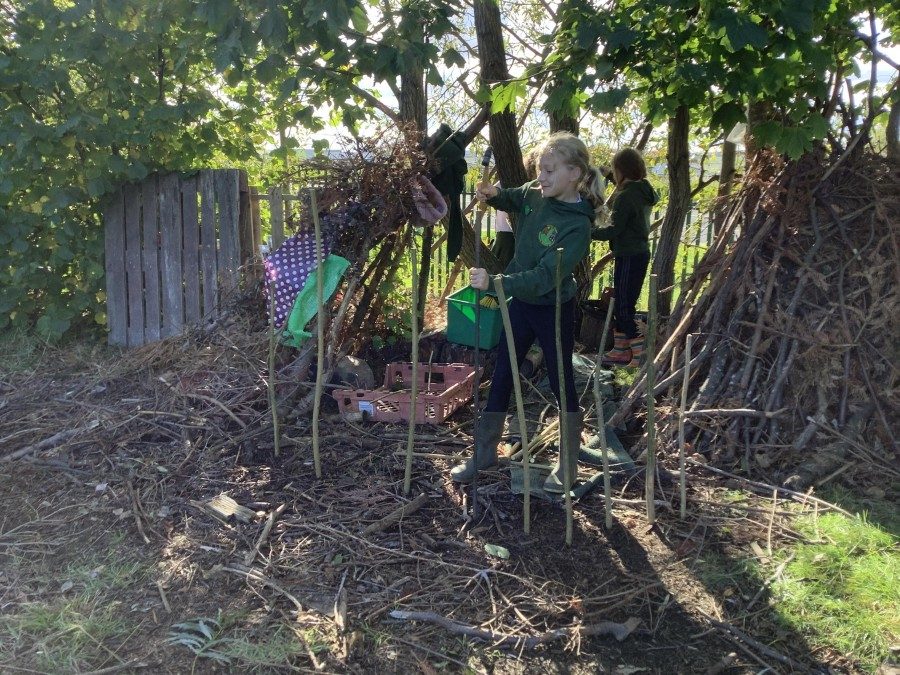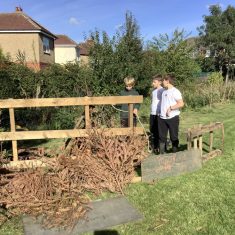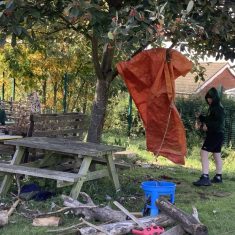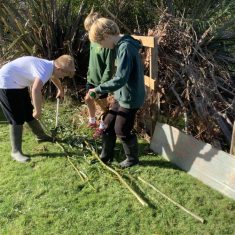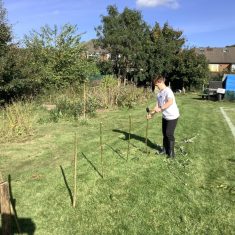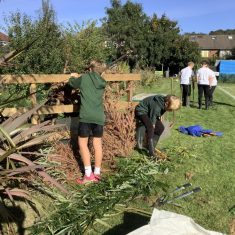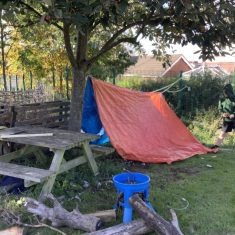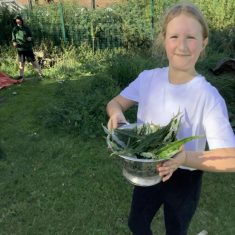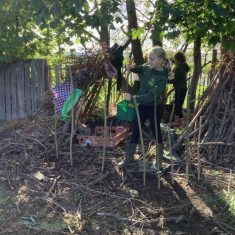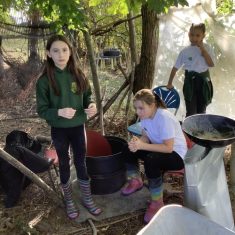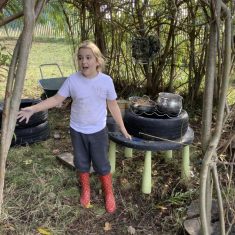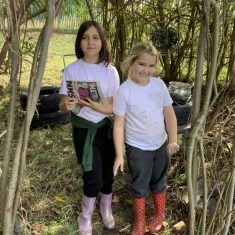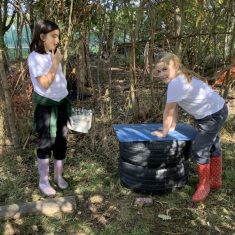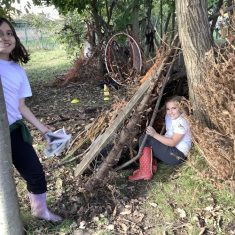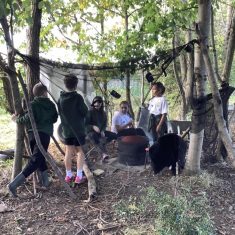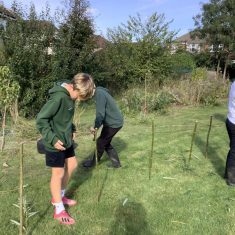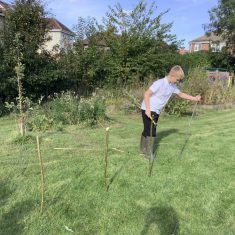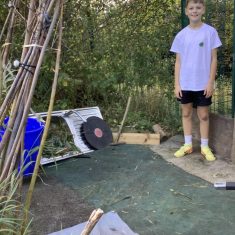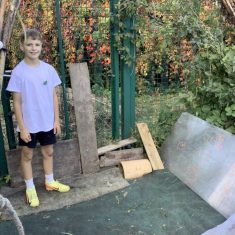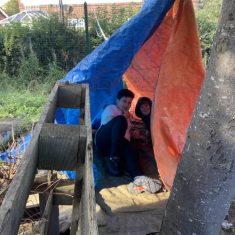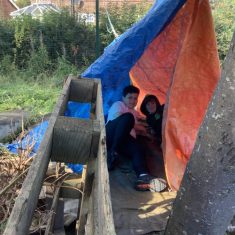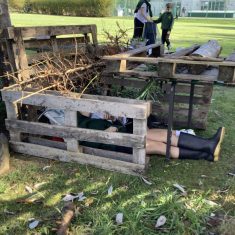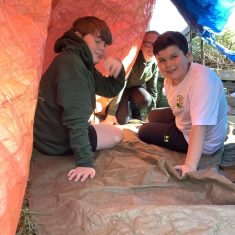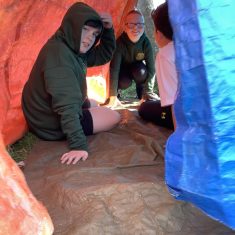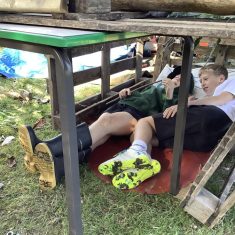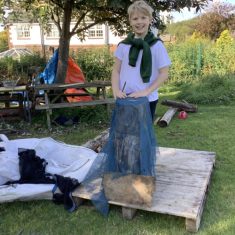Year 6 children headed out to the Forest School this week to begin in a block of sessions that have a definite theme running in the background but still follow the guiding principles of the Forest School.
Last lesson we stayed in class avoiding the torrential rain and set the scene for the next few weeks work. We talked about how traditional rural villages came about and how settlers provided for themselves before they had currency. This brought up some lively debate. They thought about how to best meet basic survival needs but also how to move from basic survival to a more thriving community. What skill-sets would be important and how those skills might be shared or used to barter for goods. How would you choose a location so you can have livestock and crops, then how do you protect them from the weather or potential attack. Where would they get water, gather food? Do they need defensive strategies? They made a list of the various jobs that would need doing, including; fence and weapon makers, builders, gatherers, strategists, designers, fire makers and more. They discussed what might be the best way to prioritise these tasks. Different groups prioritised differently so then had to negotiate how to keep harmony. They thought about whether a village leader was required, where and how they might live and how they should be treated, would it be a more dictatorial role or democratic, some children wanted to be marauders but would we see them ousted by the other villagers? Lots to think about and plan for but definitely there will be a need for flexibility and resilience.
This week the children began putting their plans into action. This was an exercise in trial and error, how do you get the ideas in your head to become actuality, experimentation and adjustment are required. They made a brilliant start, trading tools and skills, we saw some fences start going up, shelters being raised, boundaries marked out. This week we saw lots of smaller groups form, some as small as two people, next week the children may need to realise sometimes strength in numbers has its advantages. The children already have lots of ideas and are really excited to put them into action.
The Risk Principle: Forest School offers learners the opportunity to take supported risks appropriate to the environment and to themselves.
Article 19: We all have the right to be protected and kept safe.
- This group have settled near the raised beds for their crops and the nature garden for a water source.
- Tricky to fight with tarps on a windy day.
- Preparing for fence building.
- The stakes go into the ground to mark a boundary.
- Finally they wrestled the tarps into place.
- Hunter gatherers are vital to all settlements.
- More fencing going in, a bit more of a challenge in the woods where there are lots of roots to contend with.
- Creating a homestead inside the willow circle.
- This was a great idea to use a place that had natural fencing already growing.
- Food preparation area which had a water source nearby.
- Here we have a strategist that has created a log lectern where he will make propaganda speeches.
